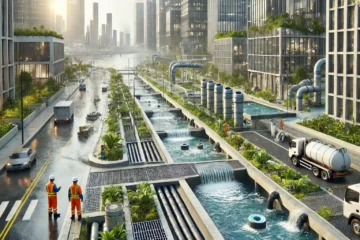The integration of renewable energy sources, such as solar and wind power, has significantly transformed the landscape of power distribution systems. While this transition offers numerous benefits, it also presents unique challenges that must be addressed to ensure the reliability and efficiency of our energy infrastructure.
Challenges and Opportunities
Challenges:
- Intermittency: Renewable energy sources, particularly solar and wind, are inherently intermittent, meaning their output can fluctuate depending on weather conditions. This variability can disrupt the balance between supply and demand, requiring flexible grid operations.
- Voltage Fluctuations: The integration of distributed renewable energy resources (DERs) can lead to voltage fluctuations, which can impact the quality of power supply.
- Grid Stability: The rapid integration of renewable energy sources can pose challenges to grid stability, especially during periods of high penetration.
- Grid Infrastructure: Existing power distribution systems may not be adequately designed to handle the bidirectional flow of power associated with renewable energy generation.
Opportunities:
- Reduced Carbon Emissions: Renewable energy sources can significantly reduce greenhouse gas emissions and mitigate climate change.
- Energy Security: By diversifying energy sources and reducing reliance on fossil fuels, countries can enhance their energy security.
- Economic Benefits: The renewable energy sector can create jobs and stimulate economic growth.
- Local Energy Generation: Distributed renewable energy systems can empower communities to generate their own clean energy.
Addressing the Challenges
To overcome these challenges and harness the benefits of renewable energy, several strategies can be employed:
- Grid Modernization: Upgrading the power grid to accommodate the increased complexity and variability of renewable energy sources.
- Energy Storage: Implementing energy storage technologies, such as batteries or pumped hydro storage, to store excess energy for later use.
- Demand-Side Management: Encouraging energy efficiency and demand response programs to balance supply and demand.
- Advanced Grid Control: Utilizing advanced control systems to optimize grid operations and integrate renewable energy seamlessly.
- Grid Integration Studies: Conducting comprehensive studies to assess the impact of renewable energy integration on grid stability and reliability.
- Grid Integration Studies: Conducting comprehensive studies to assess the impact of renewable energy integration on grid stability and reliability.
By addressing these challenges and leveraging the opportunities, we can build a more sustainable and resilient power distribution system that supports the transition to a low-carbon future.


